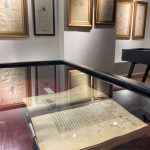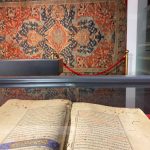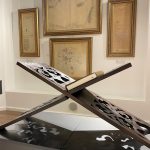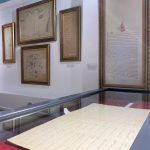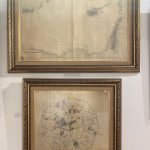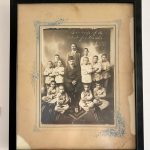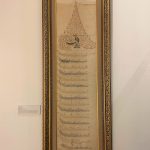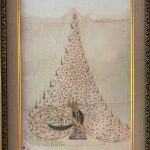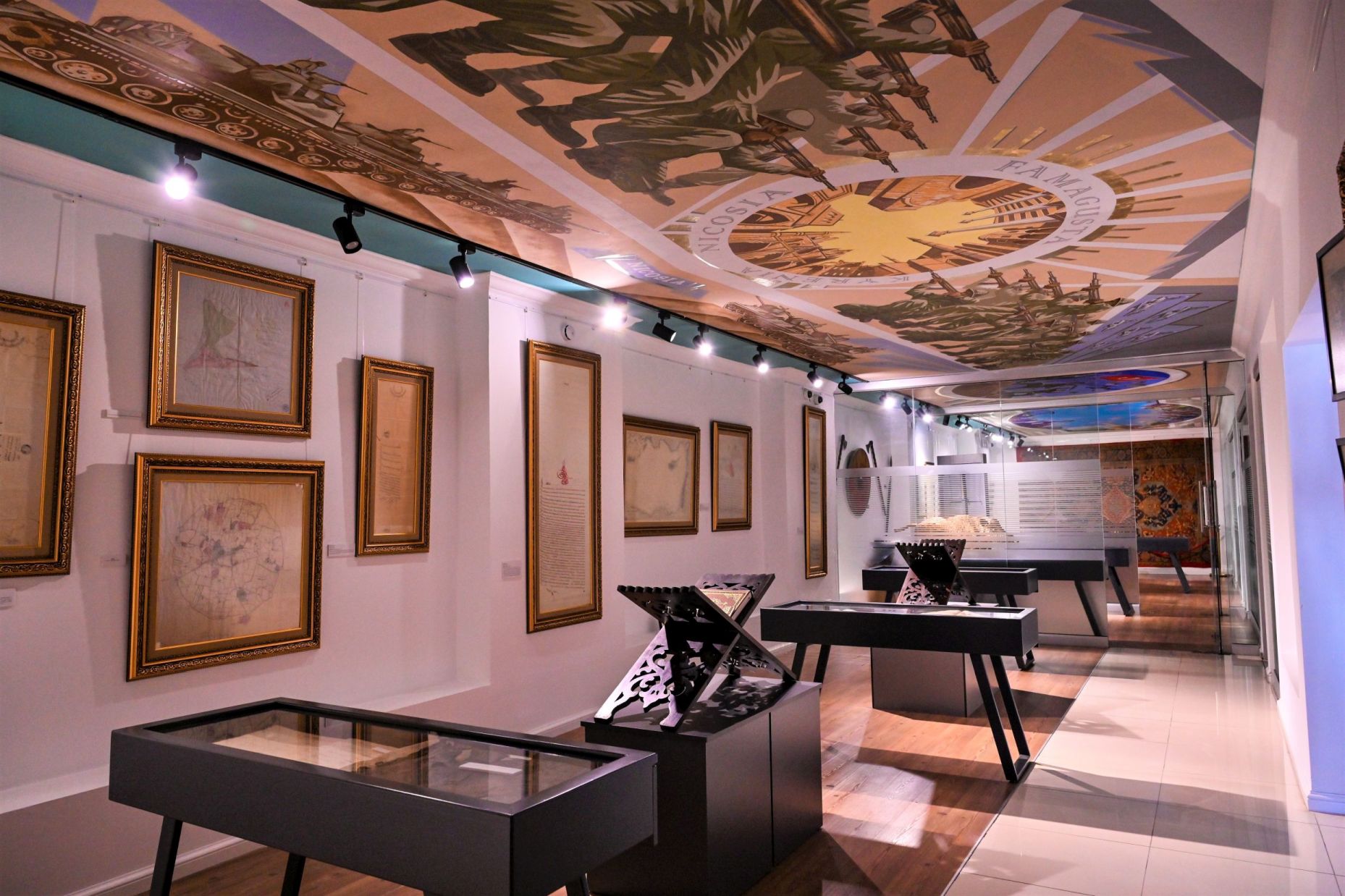
Walled City Museum, which brings together the history and culture of Cyprus under one roof, brings the traces left by the Ottoman Empire in Cyprus to the present day with its unique collection consisting of population registers, court records, maps, gold leaf manuscripts, edicts, 390 years old Land Registry Signed by Sultan Murat IV.
Welcoming its visitors right next to the Kyrenia Gate, one of the three entrance gates of Nicosia surrounded by walls in the Middle Ages, the Walled City Museum gathers the history and culture of Cyprus under one roof with its 5-storey building in its location in the historical region that formed the city center in every period of history.
Walled City Museum, founded by the Near East Enterprises, takes its visitors on a journey full of history and culture with its collections, while reflecting every period of Cyprus from Venice to Byzantium, from the Ottoman Empire to the present with its unique ceiling paintings.
The unique Ottoman Collection consisting of original works is at the Walled City Museum!
One of the most magnificent collections of the museum is gold leaf manuscripts, edicts, population registers, court records, maps, 390 years old Land Registry Signed by Sultan Murat IV. Cyprus conquered by Selim II remained under the rule of the Ottoman Empire for more than 300 years.
It is possible to witness one of the most important periods of Cyprus with the original Ottoman period artifacts exhibited in the museum in line with the cooperation protocol signed between the Near East Enterprises Museums Department and the TRNC National Archive and Research Department affiliated to the TRNC Presidency.
In the collection, which consists of original works that have come to light for the first time, manuscripts of exegesis and philosophy written in Arabic with gold leaf, illuminated Arabic, charters from the 17th and 18th centuries, documents from the early 20th century (court records), 1877-78 population register of Turkish Cypriots living in the Kukla District, the photo of the teachers and students of the school for the deaf from the beginning of the 20th century, and the photo of the students and teachers of the Nicosia Junior High School, the notebooks showing the Evkaf (General Directorate of Foundations) correspondence in Nicosia, the hand-drawn plan of the Famagusta train station and the 1917 oceanographic map by Hydrographer Admiral Sir Wharton showing the depths at sea for submarines in the eastern Mediterranean.
The certificate of appointment of Yovakim (Joakim), one of the Archbishops of Cyprus, dated 16 August 1821, is also important in terms of content. The relevant warrant includes the justification for the execution of Archbishop Konomo Kibriyanos (Kyprianos) and three metropolitans, who were executed on charges of being the planner of the planned rebellion attempt on the island to support the Greek rebellion that took place in the Peloponnese in 1821. The length of the designation certificate exceeds 1.5 meters.
Another certificate on display is written in the calligraphy of Celi Divani. It is a work of Murat IV period. The most striking aspect of this 390-year-old document is the splendor of its monogram. In addition, the aforementioned Land Registry is among the oldest Ottoman period certificates that have survived in Cyprus.
In addition to the unique Ottoman Collection, artifacts from a different style and period are exhibited on each floor of the Walled City Museum. Also, the toy car collection consisting of over 3,000 pieces, swords and knives, more than 70 sculptures, paintings, objects related to maritime history and Karagöz surrogates in the museum’s inventory open the doors of a rich world to its visitors.
